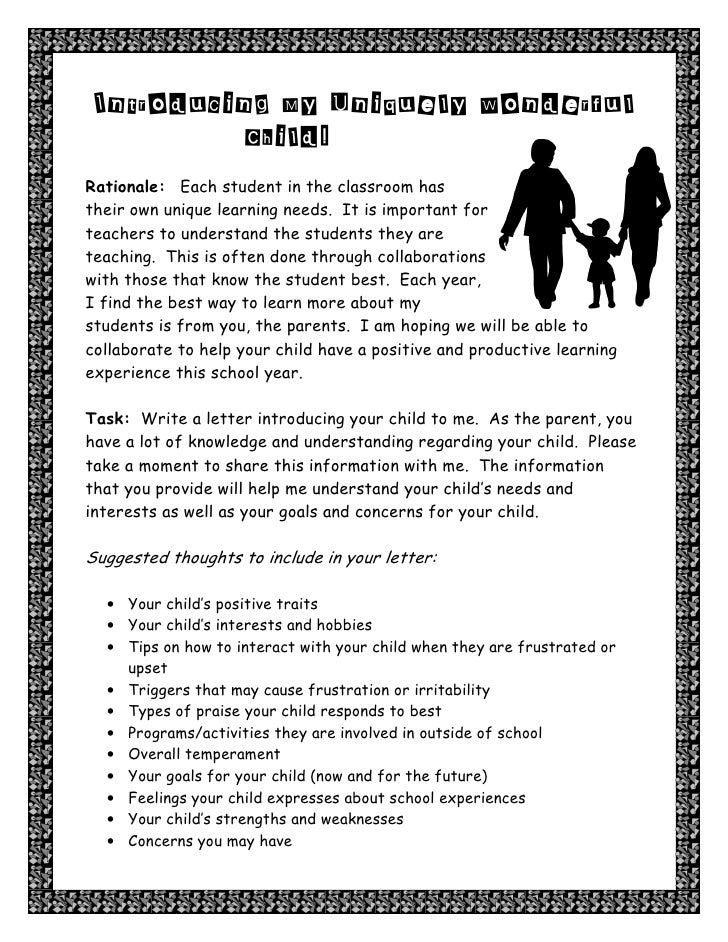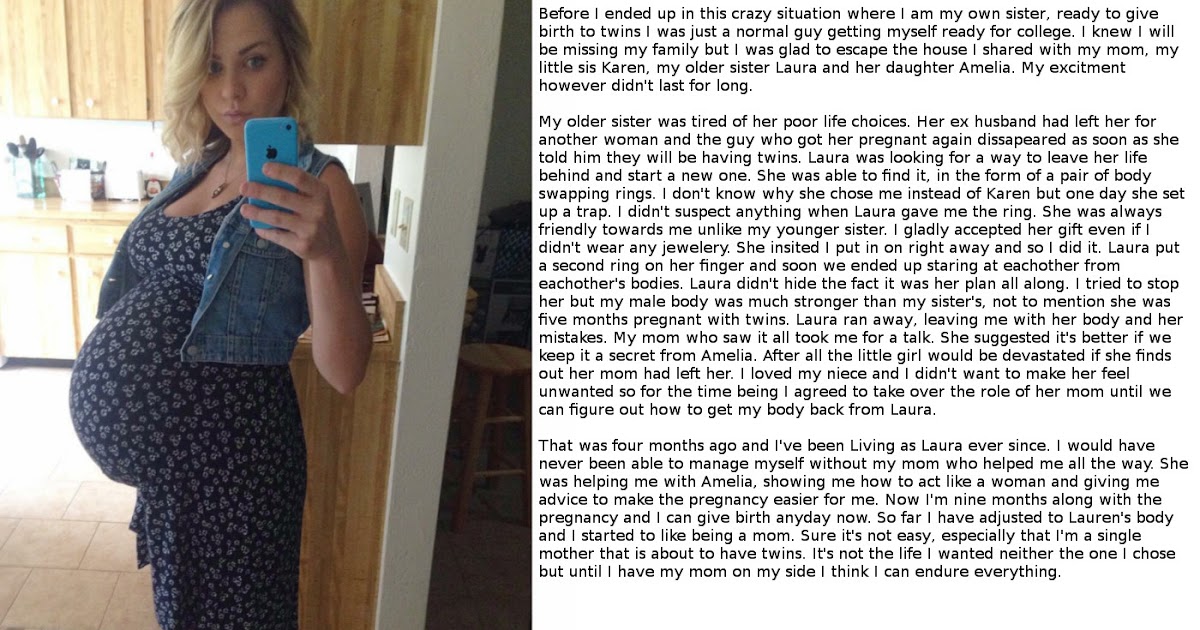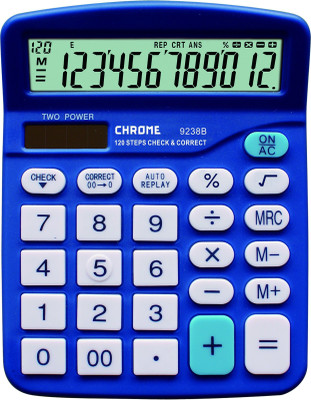How to write about your child
How to describe your child to a teacher (including templates)
With each new school year, you are given the opportunity to expand and perfect your communication style with your child’s teacher. Our learning and development specialist Emily Andrews outlined some effective communication strategies for parents that you can take into consideration to get your relationship off on the right foot.
But, we know that the beginning of the school year can be an incredibly hectic time for parents, teachers, and children. To help you establish a strong relationship between your child’s teacher and yourself and to help set your child up for success in school, we’ve outlined tips and templates to help you describe your child in letters, paragraphs, and in person.
- How to describe your child to a teacher
- Sample letter describing your child
- Describe your child in a paragraph
How to describe your child to a teacher
Some schools send out forms with questions for parents to answer about their children while others ask parents to write a letter describing their child. Still others don’t formally ask questions and assume the parent will let them know on their own either in an email, call or parent-teacher conference.
Whatever the case is with your child’s school, understanding how to describe your child to a teacher in a clear and concise way can help establish good communication between you and your child’s teacher as well as help the teacher be the best possible advocate for your child.
Here are some tips to keep in mind when you prepare to describe your child to a teacher.
- Start with a blank slate. Assume your child’s teacher knows nothing about them. Introduce yourself, your child, and your family structure. Let the teacher know if they have a nickname and what pronouns they use.
- Talk about their strengths and their weaknesses. Try to remove yourself from the situation and speak neutrally about your child. What are they good at? What do they need help with? Be honest because your child’s teacher will see it themselves anyway.
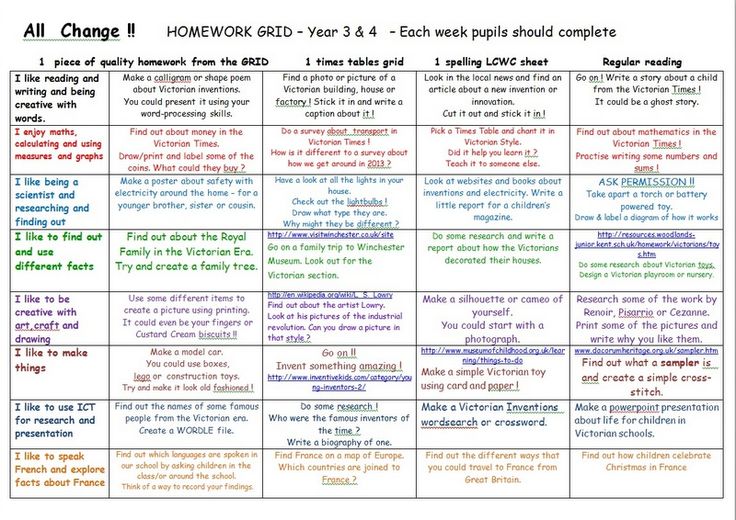
- Be specific. When describing your child and how they are in school and at home, be as specific as possible. Refer back to past assessments so that their teacher knows what to expect and how they can be the best champion for your child. When you describe your child's personality, use the temperament terminology so you and their teacher are on the same page.
- Keep it friendly and upbeat. This is the start of a new year and a new opportunity for your child to grow and learn. Their teacher is going to lead them on this new journey, so you and your child should be excited!
- Be a partner. In your letter, express your intent to act as a partner to the teacher. You will work together with them to help your child be successful this year.
Now, we’ll outline some tips and templates to help you shorten and lengthen your description based on school requirements and time constraints. This will help ensure you hit all of the right points so you, your child, and their teacher will be successful and happy this year.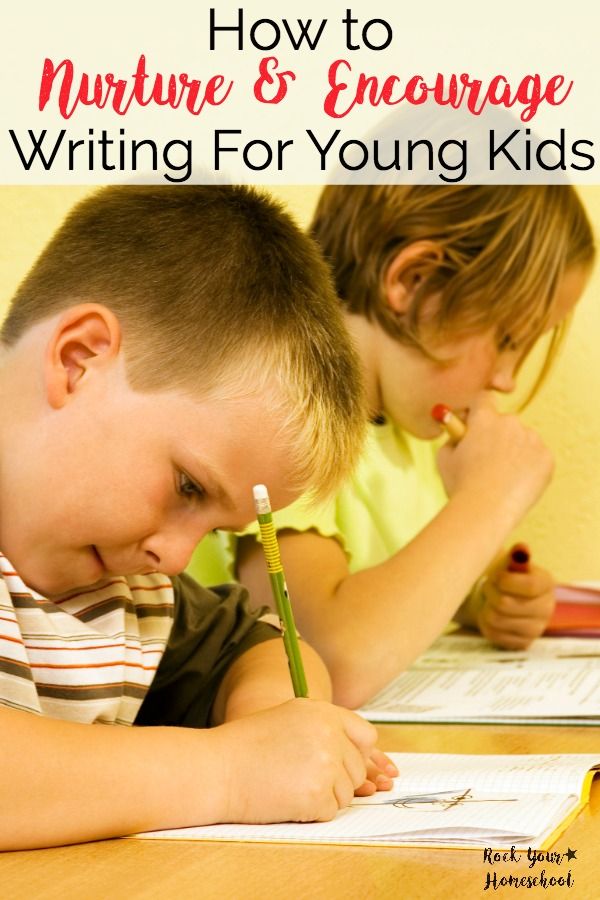
Sample letter describing your child
Dear Mr. Cohen,
I want to start by saying how excited we are for this school year! We have heard great things about your class and I know Jeremy and I are both thrilled for a new year of learning and adventure.
I thought it would be helpful for me to introduce you to Jeremy in this letter and let you know some information about him from home and from his past assessments. To start, Jeremy (he/him) is an excellent student and he is really motivated to do well in class. He is definitely best at math and can do a lot of math in his head very quickly.
However, because he is so advanced in this subject, he sometimes disrupts the class during these lessons. His teacher last year wrote this on one of his early assessments, “Jeremy can add & subtract large numbers in his head and he is often bored during math lessons because he is ahead of other students.”
Jeremy loves sports and competition, so we were able to develop an internal competition to help pay attention and stay focused in math class. I will continue that process at home, which should hopefully help keep the disruptions at bay. But, if you see this occurring in class again, please let me know. I want to be your partner this year to help make class as enjoyable and successful for you, Jeremy, and all of the students.
I will continue that process at home, which should hopefully help keep the disruptions at bay. But, if you see this occurring in class again, please let me know. I want to be your partner this year to help make class as enjoyable and successful for you, Jeremy, and all of the students.
At home and in his other subjects, Jeremy is very quiet. He might need some additional prompting to answer questions, but he is doing the work and paying attention. Jeremy comes from a single parent household, but luckily, I work from home so I am able to be there with him when he returns from school each day.
Looking forward to working with you to make this the best year yet for Jeremy!
Best,
Sarah Miller
You’re all set!
Download NowLet’s Go
You’re all set!
Download NowLet’s Go
Oops! Something went wrong while submitting the form.
Describe your child in a paragraph
If your school gives you a form to fill out at the beginning of the year or before the first parent-teacher conference, they might ask you to describe your child in a paragraph. We know, your child is your precious baby (despite how old they actually are!) and one paragraph might not feel like enough space.
We know, your child is your precious baby (despite how old they actually are!) and one paragraph might not feel like enough space.
Here are our top tips and a template you can use to hit all of the key points.
- Stay focused. Remove the fluff and keep it as clear as possible since you do not have a lot of space.
- Talk about your concerns. Does your child have a medical condition, allergy, bathroom issue, learning disability, or something of the sort? You want to make sure you talk to your child’s teachers about your concerns because it is the most important for them to understand.
- Use examples. Since you do not have a lot of space, spend the time using actual examples from the past so your child’s teacher understands what you are saying and how they can help this year.
You can use this template to help you describe your child in a paragraph:
“Jeremy (he/him) excels at math but can get disruptive during the lessons because of this.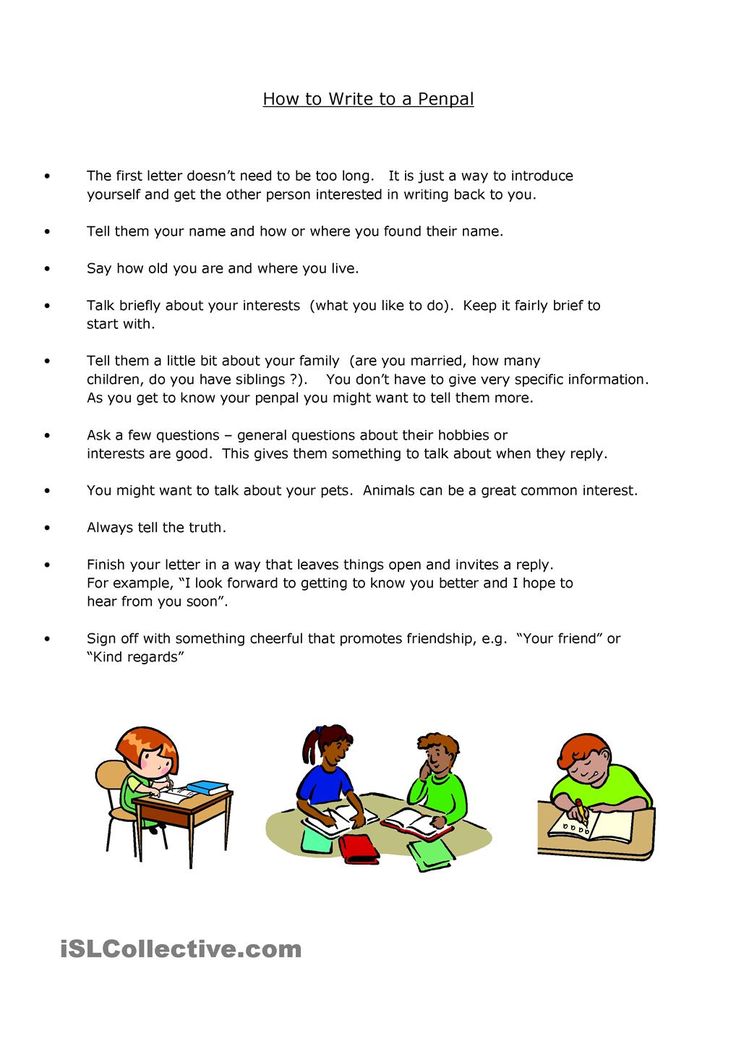 His teacher last year reported that, “Jeremy can add & subtract large numbers in his head and he is often bored during math lessons because he is ahead of other students.” He loves sports and competition, so games and challenges help keep him attentive. In his other subjects (and at home), Jeremy is quiet. He doesn’t enjoy reading on his own but he will do it for class. He is very motivated to do well in school.”
His teacher last year reported that, “Jeremy can add & subtract large numbers in his head and he is often bored during math lessons because he is ahead of other students.” He loves sports and competition, so games and challenges help keep him attentive. In his other subjects (and at home), Jeremy is quiet. He doesn’t enjoy reading on his own but he will do it for class. He is very motivated to do well in school.”
Hopefully our tips and templates will help you as you navigate how to describe your child to a teacher, but ultimately, you know your child best and you know what needs to be said to get them the support and care they need for a successful school year."
The team at Sawyer is always here to help if you are looking for resources or fun activities for your children. Best of luck ahead!
How to Write A Letter Describing Your Child To A Teacher
It’s Back-to-School Time!It’s hard to believe how quickly school sneaks up on us. As a mom, I struggle with the sameness of August, trying to save money on back-to-school supplies, preparing healthy snacks for school, and the transition back to school for my child.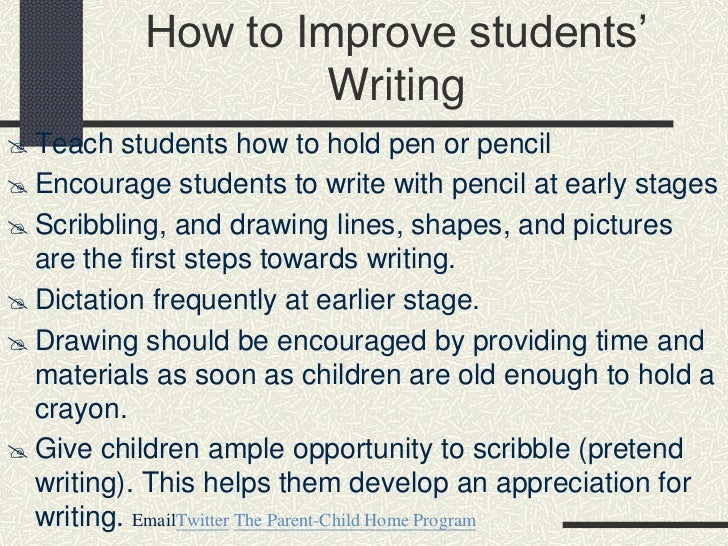
Above all else, the best gift you can give your child’s teacher at the beginning of the year is insight into your child. This is the first step in advocating for your child before parent-teacher conferences. Here’s how to write to your child’s teacher!
If your teacher has not already given you a list, here are some suggestions on creating a one-page letter about your child.
How To Describe Your Child
First, introduce your child and your family. Share your child’s gifts and talents. This allows for immediate connection. After defining your child by his gifts or strengths (important), then list your child’s struggles, but don’t stop there.
Explain specific ways you have dealt with these struggles or quirks in the past.
For example; “My son struggles with focus, but in the past teachers have allowed him to do x, y and z to improve attention.” You want to be a collaborator who solves problems, together.
(adapted from Kirk Martin at Celebrate Calm)
Questions To Get You Started For Children K – 2nd Grade:1. Your child’s past school experience.
Your child’s past school experience.
2. How does your child approach school or learning? (apprehension or excitement)
3. How would you describe your child’s learning style? (hands-on, visual, etc)
4. What kind of environment do you think your child learns best in? (structure, more independent, calm)
5. Child’s strengths and weaknesses academically and socially.
6. Hobbies your child enjoys.
7. Goals for your child this year at school.
8. Your home situation (pets, divorce, death, new baby)
9. Any additional concerns.
Questions To Get You Started For Children 3rd Grade and Up:
1. Feelings about math and reading.
2. Study habits at home and school.
3. Social skills and how he relates to others.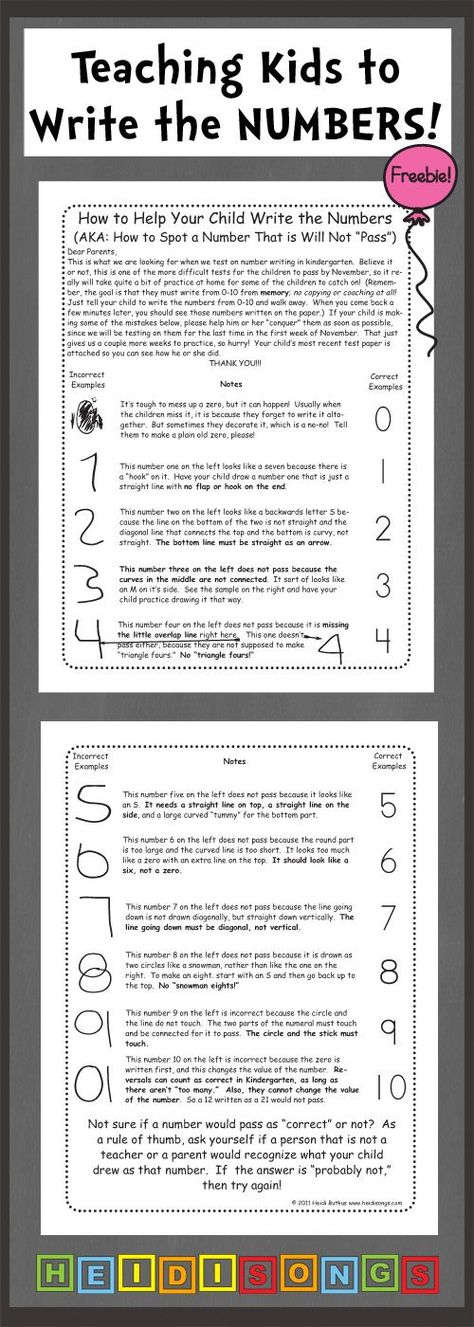
4. Situation at home (loss of pet, divorce, death, new baby)
5. What kind of environment do you think your child learns best in? (structure, more independent, etc)
6. Child’s strengths and weaknesses academically and socially.
7. Hobbies your child enjoys.8. Goals for your child this year at school.
9. Any additional concerns.
Parent Note: You do not need to wait until the first conference in October or November to talk to your child’s teacher. Waiting for the first conference or first quarter report card can waste a lot of precious time. If you have something to bring to your teacher’s attention, do it now!Remember, the teacher may have 23+ students that she’s trying to get to know.
You are your child’s best advocate!
Click Here For More Helpful Back To School Resources:
- What To Ask At Parent Teacher Conference
- Real Advice For Middle School Boys
- Tips and Ideas For Starting Middle School
- Back To School Fairy Printable
- Healthy Schools Snacks List
- Lunch Box Jokes for Kids
(Visited 80,242 times, 45 visits today)
Composition My child (for kindergarten or school, about a girl and a boy)
- Compositions /
- Family
About a girl
For every mother, her child is always the best, and sometimes it is difficult to objectively evaluate his actions. My daughter Lisa is only 2 years old. Someone will say that this is already a lot and that she is an adult, but for every mother her child at any age remains a child.
At the age of one and a half, my daughter started attending a kindergarten, a nursery group. On the first day in the garden, she fell in love with him very much, of course, thanks to the wonderful teachers and nannies who were able to properly organize leisure and games with the children.
At two years old, Lisa speaks very clearly, so we have no problems communicating with adults and peers.
My daughter is a very mobile child, sitting quietly and calmly for a long time is problematic for her. As soon as she hears the music, she immediately starts dancing.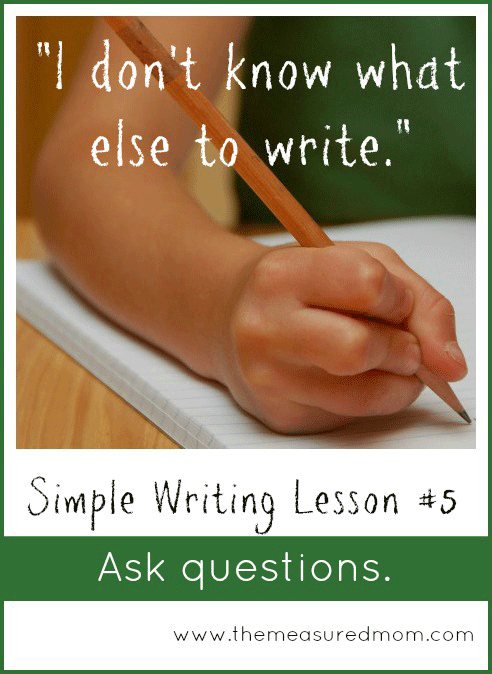 And maybe when she grows up a little, I will enroll her in a dance studio.
And maybe when she grows up a little, I will enroll her in a dance studio.
But my daughter's main hobby is drawing. For the first time she took a pencil in her hands at 11 months, then she drew her first drawings. At first it was just, as the saying goes, "kalyaka-malyaka", but now she already draws quite beautiful drawings. She loves to draw in any way, be it pencils, paints or crayons. Well, I very carefully store all my daughter's drawings in a separate folder. And I will definitely continue to develop her drawing skills.
Somehow it happened that Lisa did not like cartoons, but from the very birth she was interested in books. Interest in books grew into true love. There are a lot of different books on the shelf in her room. In the breaks of the games, she takes out one and asks me to read to her. My daughter especially loves it when I read fairy tales to her before bed.
Lisa is a very beautiful girl, with blue eyes from her father, and blond hair from her mother, which is always braided or ponytailed. Like all girls, she loves to dress beautifully, loves to wear dresses, and always wears them with special care. Her accuracy is shown not only to clothes, but also to her toys. She rarely scatters them, but then she always collects them herself, and she never broke a single toy. In general, my child is very obedient, if she doesn’t like something or is not happy with something, she expresses it quite calmly. She loves her parents very much, and, of course, her grandparents.
Like all girls, she loves to dress beautifully, loves to wear dresses, and always wears them with special care. Her accuracy is shown not only to clothes, but also to her toys. She rarely scatters them, but then she always collects them herself, and she never broke a single toy. In general, my child is very obedient, if she doesn’t like something or is not happy with something, she expresses it quite calmly. She loves her parents very much, and, of course, her grandparents.
My daughter is also growing up to be a great helper. She is always interested in the process of cooking or cleaning, and she herself shows a desire to help me. She also likes to help dad when he fixes or makes something.
Every day my daughter is getting older, smarter and smarter. And every day I love her more and more, and I really hope that I can bring her up well.
Composition about a boy
Children are the most important and valuable thing in our life. They change the life of adults, making it more active, interesting, vibrant and rich.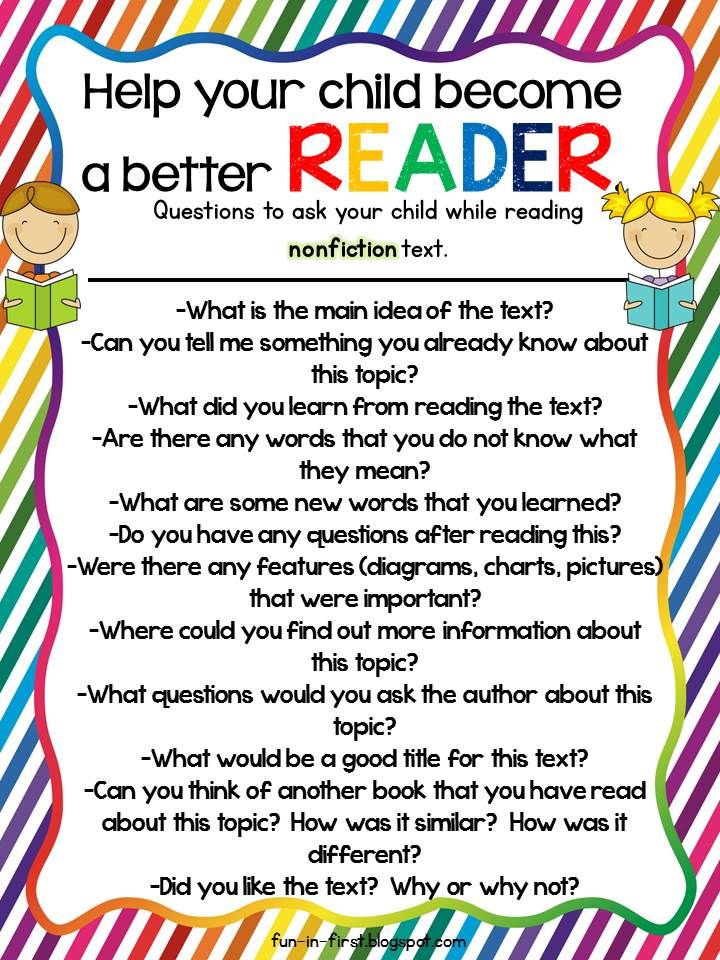 And 5 years ago, it was he who appeared in my life with my husband, a little man who changed us once and for all. Our son Vyacheslav was born on a wonderful May holiday, May 1st. He quickly gained weight and height, and, as it should be for a baby, he ate and slept a lot. And now he has grown up to be a smart, athletic and very kind boy.
And 5 years ago, it was he who appeared in my life with my husband, a little man who changed us once and for all. Our son Vyacheslav was born on a wonderful May holiday, May 1st. He quickly gained weight and height, and, as it should be for a baby, he ate and slept a lot. And now he has grown up to be a smart, athletic and very kind boy.
From a very young age, Slava fell in love with books. At first he simply examined them, and then asked him to read them. At the age of 5, he can already read a word of two or three syllables. And dad taught him to count up to 30. But, probably, most of all, our child loves to collect puzzles and a designer. I am sure that this love comes from his father, who works as a chief engineer. Fascinated by puzzles, Slava can sit for half a day, while he is always patiently and diligently looking for a suitable puzzle. After diligently collecting puzzles, Slava loves to spend the energy that he has accumulated so much. He loves to climb the sports complex, jump on the trampoline, and recently he really enjoyed climbing the climbers wall.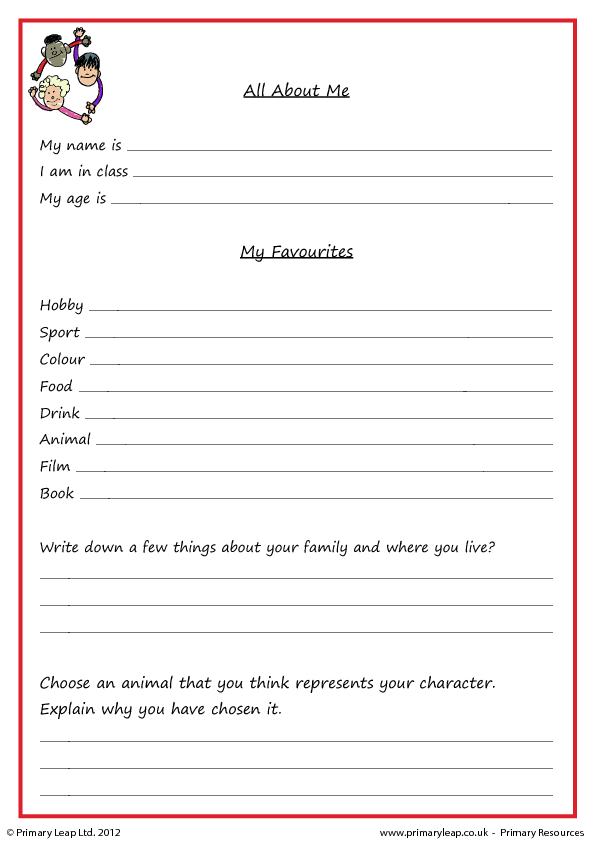 He has many types of constructor, there are also very difficult ones for him, then dad comes to the rescue. Dad plays an important role in the upbringing of his son, Slava always speaks about dad with pride and love, and in the future, she wants to be like him.
He has many types of constructor, there are also very difficult ones for him, then dad comes to the rescue. Dad plays an important role in the upbringing of his son, Slava always speaks about dad with pride and love, and in the future, she wants to be like him.
Nowadays, there is a lack of kind and sympathetic people who are always ready to help. It is these feelings that we try to instill in our son. When we go for a walk with our son, we feed homeless dogs and cats. He enjoys doing a good deed so much that now he prepares bones for them himself. And just recently, Slava collected a package of toys that he no longer plays with, and together we took them to very needy children in an orphanage. He never gets greedy with toys or anything. When we had a godmother of Glory with his daughter, who is two years younger than him, he showed his hospitality, treated the girl with cakes, showed his toys and even gave her one. And he has no problems in communicating with adults. He perfectly understands what can and cannot be done, to be rude to elders, and in general it is absolutely impossible to be rude, and he never did this.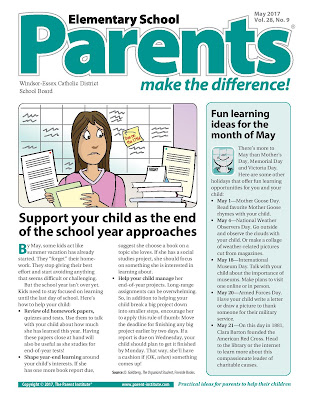
Putting a lot of work, effort and patience into my son's upbringing, I can see from my son's behavior that all of this gives results. I can say with confidence that my son Vyacheslav will grow up as a serious and responsible guy.
More topics:← Description of the mother's appearance↑ FamilyMy family →
`
My child (for kindergarten or school)
Popular compositions
- Composition The theme of the people in Tolstoy's novel War and Peace
L.N. Tolstoy in his novel "War and Peace" described the spirit of the people as a whole and fragmented, he showed it in the representatives of the intelligentsia, partisans, peasants and other ordinary people.
- Searches and finds of poets of the Silver Age - composition
At the turn of the 19th and 20th centuries, new poetic trends emerged in Russia, which were united under the name of the Silver Age.
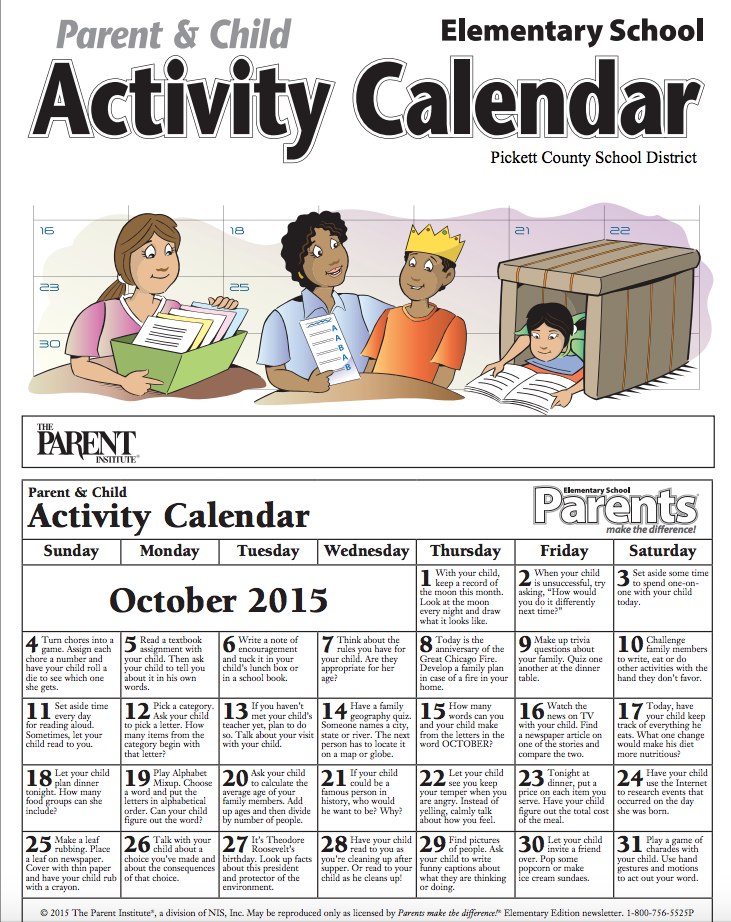 The poets looked for other methods, expounded their views on the ongoing difficult historical situation.
The poets looked for other methods, expounded their views on the ongoing difficult historical situation. - Essay on Helping People
What is kindness and why is it necessary to help people? Surely everyone thought about this topic.
Essay on the theme "My child is the best" for the contest "Star Olympus"
- NEWS FEED
- ADMINISTRATIVE MAP OF AREA
- CONTACTS
News of the district
PrevNext
News of education and culture
PrevNext
Bulletin of organizations of the district
MapShilkaCONTACTS COUNCIL OF DEPUTIES OF THE DISTRICT DISTRICT ADMINISTRATION EDUCATION HEALTH CARE CULTURE PORTAL ADMINISTRATORS
In our district there is a competition for students "Star Olympus". And as the first stage, we - parents need to write an essay "My child is the best." And, as it turned out, we can say a lot of good things about our child. We decided to write this essay a little non-standard - just write 10 points that characterize our best and most beloved child.
And as the first stage, we - parents need to write an essay "My child is the best." And, as it turned out, we can say a lot of good things about our child. We decided to write this essay a little non-standard - just write 10 points that characterize our best and most beloved child.
Our youngest daughter's name is Inna. So, our 10 points are:
1) She is very kind, sweet and nice. She has a remarkably easy character - accommodating, comfortable, friendly. It’s very easy psychologically with her: she never presses, doesn’t offend and doesn’t take offense for no reason. It's comfortable with her.
2) She is very positive - she is in a good mood and ready for good things.
3) She is pretty, she has good taste and can even advise us in the question that arises - "What suits me?"
4) She draws interestingly - completely unprofessional, but funny and expressive, and writes well if this is a fairy tale for herself, and not an essay for school.
5) She is tender, loving and compassionate.